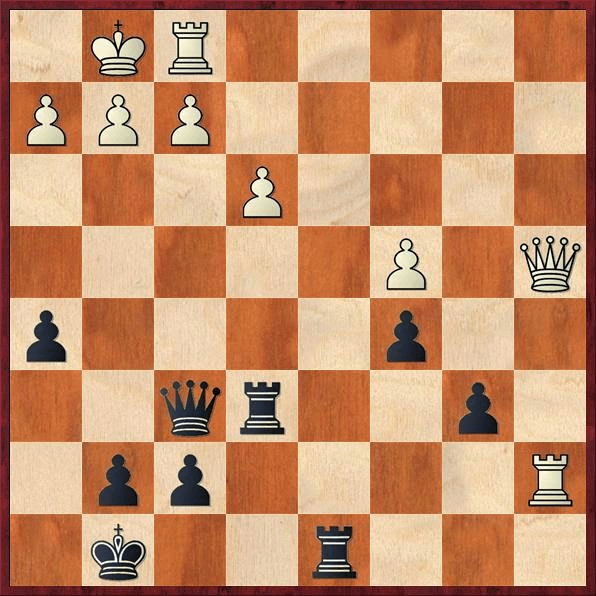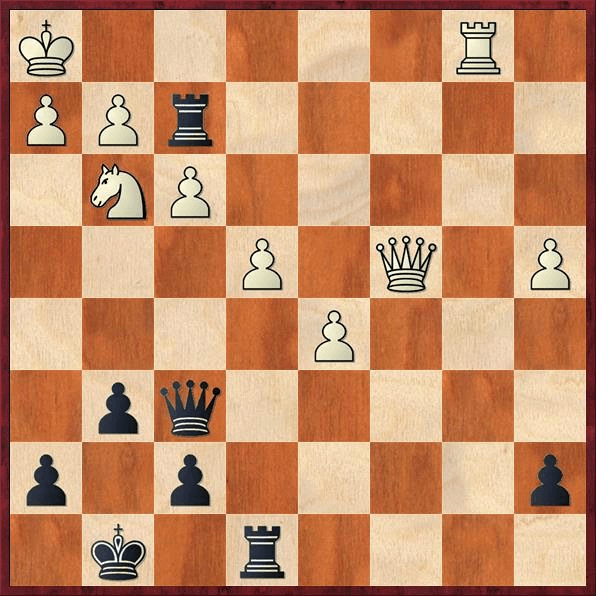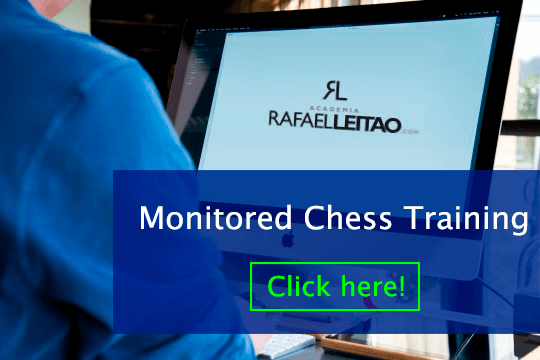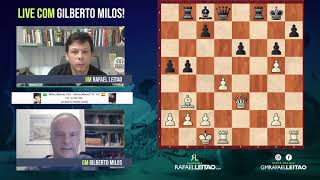How To Get Mentally Strong In Chess
It has been quite well known that an sportsman does not depend exclusively on his technique in order to get good results. Many other factors are important, but the most important one in my opinion is what I call “mental strength”. That is the kind of strength that allows the competitor to remain self-controlled even in the moments of highest tension, which makes him keep fighting even if the situation is hard.
Individual sports depend a lot more on that mental strength; after all, you cannot blame anyone else but yourself for your decisions. In chess, we carry a psychological burden that is much bigger than the normal, because you just cannot let it off. And knowing how to cope with these emotions makes a huge difference on the tournament charts.
Those who are used to competing have certainly been through the desperate feeling of realizing they have made a mistake at the same moment they let go of a piece on the chessboard, the tension for being in time trouble in a complex position, or yet the insecurity when paired against a much better rated opponent. That can cause sweating, sudden heats all over the body, weight loss during a game… For those reasons, Kasparov once said “Few things are as psychologically brutal as chess”. Therefore, we must learn how to deal with emotions. And just like everything in life, it is necessary to recognize the problem and train hard to overcome it.
In this article I will mention some of the psychological questions that seem common in the practice of a chess player, once they have been observed throughout years of competition and training. Some of them were mentioned in my lecture about my seventh national title, in which I made a review of the most important psychological moments.
How to get over losses?
Maybe that is the biggest problem for chess players. I know many professionals that gradually quit competing because they were afraid of losing. There are also the ones who get disappointed after losing a game and begin to play their following games in reckless fashion, and end up by suffering a long string of subsequent losses. An example of a player who deals pretty well with his defeats is Magnus Carlsen. He is always ready to fight on the following day no matter what may have happened. In the 2015 Wijk aan Zee Tournament, he put a sequence of 6 consecutive wins right after losing his 3rd round game. Topalov is also an excellent example so as to mention only a few elite players.
On my way to the seventh national title, I had to get over a very painful loss I had suffered a few days before the competition.

Salinas, P. 2411 x Leitão, R. 2636 (Black to move)
Antofagasta 2015
In that position, after making the move 25.Qa4, my opponent offered a draw. Objectively, the position is equal, but I thought that I could still fight for the win. After 25…h4 (the need for this move is questionable) 26.h3, I decided to threaten the kingside with the frightening 26…Qg5??, a totally superficial move. After 26…Red6 27.Ra8, the game could have ended in a draw, even when only black would have had a practical chance.
The game went on 27.Rd1!, and to my horror I found out that the threats inflicted with the rook from a7 are really unpleasant. Unable to switch my mindset from “attack” to “defense”, my position kept getting worse and worse, and I ended up defeated. See the complete game by clicking here.
The problem was not the fact of finishing badly ranked in the tournament, but in fact feeling that that game could disturb my plans for a more important tournament which was just coming up. Fortunately, I was able to reestablish myself and win the Brazilian Championship, which started right after that episode. I was also able to mentally analyze my mistakes and find the motivation to try and play better, which fortunately happened.
It is necessary to understand that losses are part of the process no matter how painful they are. We need to unwind, try to sleep well, and be ready to give our best on the following day. Generally, the sooner you let go of the past during a tournament, the better it will be. That is also important if you miss a winning move and only realize that during the game or even after it. After the competition, it is important to analyze your mistakes and work on them. During the event, the best thing to do is only face forward.
How to fight tension?
The tension in chess games is big and varied, but I will talk about two specific cases here.
1 – Tension when facing a stronger opponent
Many chess players perform way below their usual level when they play against someone who is better ranked. That is a normal situation, and it usually fades away after you gain more experience. However, for many that is a tough obstacle to overcome. A few players brazenly play for draws or would hardly refuse a draw offer. That leads to a pretty comfortable situation for your opponent. One needs to get used to always play to win (if the opportunity comes of course). A good example from my experience was my game against Lautier in the 2000 World Championship.

Lautier, J. 2648 vs. Leitão, R. 2567 (Black to move)
New Delhi 2000
In this complex position, my opponent offered a draw. I will not deny that I was tempted to accept it. That was my first game in the match (with black), and my opponent had a superior curriculum and a higher rating, having defeated Kasparov more than once. But a chess player needs to be ready for the fight. With the natural optimism of being a 20-year-old and feeling confident with the way the game was going until then, I decided to play for the victory. The decision proved to be right, and I was able to win the game and the match (that was my best performance in World Championships with the knockout format, having reached the round of 16). See the game by clicking here.
To my pupils in development process, I usually recommend an extreme solution for that problem: not to offer or accept a draw unless the position is completely tied. That is important to build the personality of a “fighter” – once that character has been shaped, it will be possible to become more flexible about the issue of agreeing on a draw.
2 – Tension during a time trouble
Being in time trouble is something to be avoided as often as possible. But even with appropriate training, you will eventually find yourself having to make decisions with very little time. And for many that is synonymous with accelerated heartbeats, trembling hands and “patzer’s blunders” on the chessboard.
That is case in which it is important to have practice in fast games. The easiest way for that is playing on the internet. Who says that playing online is waste of time? If you have experience in making fast decisions, or if you practice that aspect of the game as you play on the internet, you will feel naturally calmer during the game.
How to gain confidence?
Our playing energy during a tournament is very much affected by our confidence. There are tournaments in which we feel as if we were invincible, just ready for any battle. In moments like that we can play way above our usual performance. Just the same, if we lack confidence, which is something that is apparent in lacking courage to make critical decisions, playing way too carefully, recalculating variables too many times (for the fear of having missed a move before), and so on, that insecurity usually makes our game a lot slower.
I know a player above 2700 that decided to improve his tactics a short time from a tournament. And for that he started trying to solve a few extremely complex calculation exercises. His results in answering the exercises shook his confidence in such way that he played the tournament below his usual potential. Therefore, be careful about doing something that can affect your confidence on the eve of a competition!
It is possible, by the way, to go in the opposite direction. Solving simple tactical exercises that are a little below your usual complexity level can serve as mental warm up and boost your motivation before games. That kind of practice is even recommended on the day of the games if done with moderation.
Make a detailed analysis of your games and check what kind of mental mistakes you usually make. And do not only train the technical part. The result will be a great boost in your practical power.







No comments